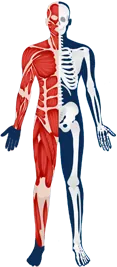- Home
- Browse by Disease
- Chronic recurrent multifocal osteomyelitis
Chronic recurrent multifocal osteomyelitis
- Other Names:
chronic multifocal osteomyelitis; chronic recurrent multifocal osteomyelitis (disease); CNO/CRMO; CRMO; NBO; non-bacterial osteomyelitischronic multifocal osteomyelitis; chronic recurrent multifocal osteomyelitis (disease); CNO/CRMO; CRMO; NBO; non-bacterial osteomyelitis
Read More
Read Less







